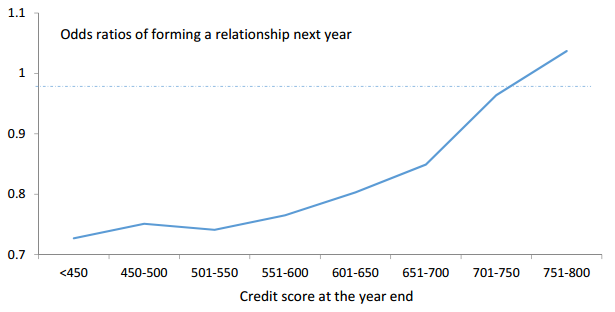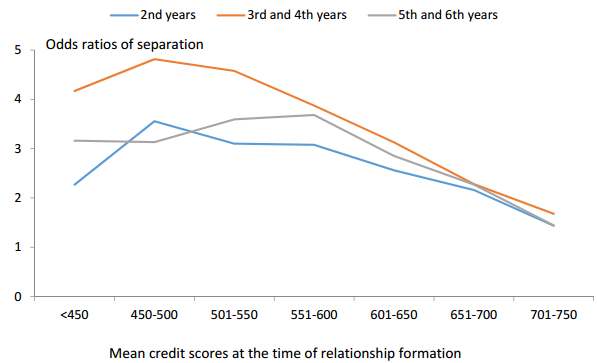If you’re looking for relationship advice, the Federal Reserve is dispensing it: Find someone with a high credit score.
People with higher credit scores are better at romantic relationships, researchers at the central bank have found.
In a new study published by the Federal Reserve Board of Governors, economists found that “credit scores are positively correlated with the likelihood of forming a committed relationship and its subsequent stability.”

Furthermore, people with good credit tend to end up with other people with good credit, even after taking into account differences in economic and demographic characteristics.
The connection comes about because “credit scores reveal an individual’s relationship skill and level of commitment,” say the authors, Jane Dokko of the Brookings Institution, Geng Li of the Federal Reserve Board and Jessica Hayes of UCLA.
The study also reveals that couples with very different credit scores are more likely to face splits. The authors don’t speculate about why that might be, but one possibility is that the partners disagree about money management or have differing levels of trust.

The study was published in August and referred to in a post published Thursday on the central bank’s website. That post piggybacked off the idea that credit scores can be used as an indication of trust and commitment to examine the possibility that low-trust neighborhoods underinvest in stock markets.
The findings seem intuitive, but it took algorithms and a 55-page report to examine them.
The study uses data on credit records of 12 million people over 15 years to examine relationship trends. The researchers found that people with higher credit are more likely to enter relationships and less likely to separate.

“These results lead us to hypothesize that credit scores, in addition to measuring an individual’s creditworthiness regarding the repayment of debt obligations, reveal information about an important relationship skill,” the authors write. “We argue that one such skill could be an individual’s general trustworthiness and commitment to non-debt obligations.”
They then check that hypothesis with data showing a relationship between credit scores and trustworthiness in geographical areas.
